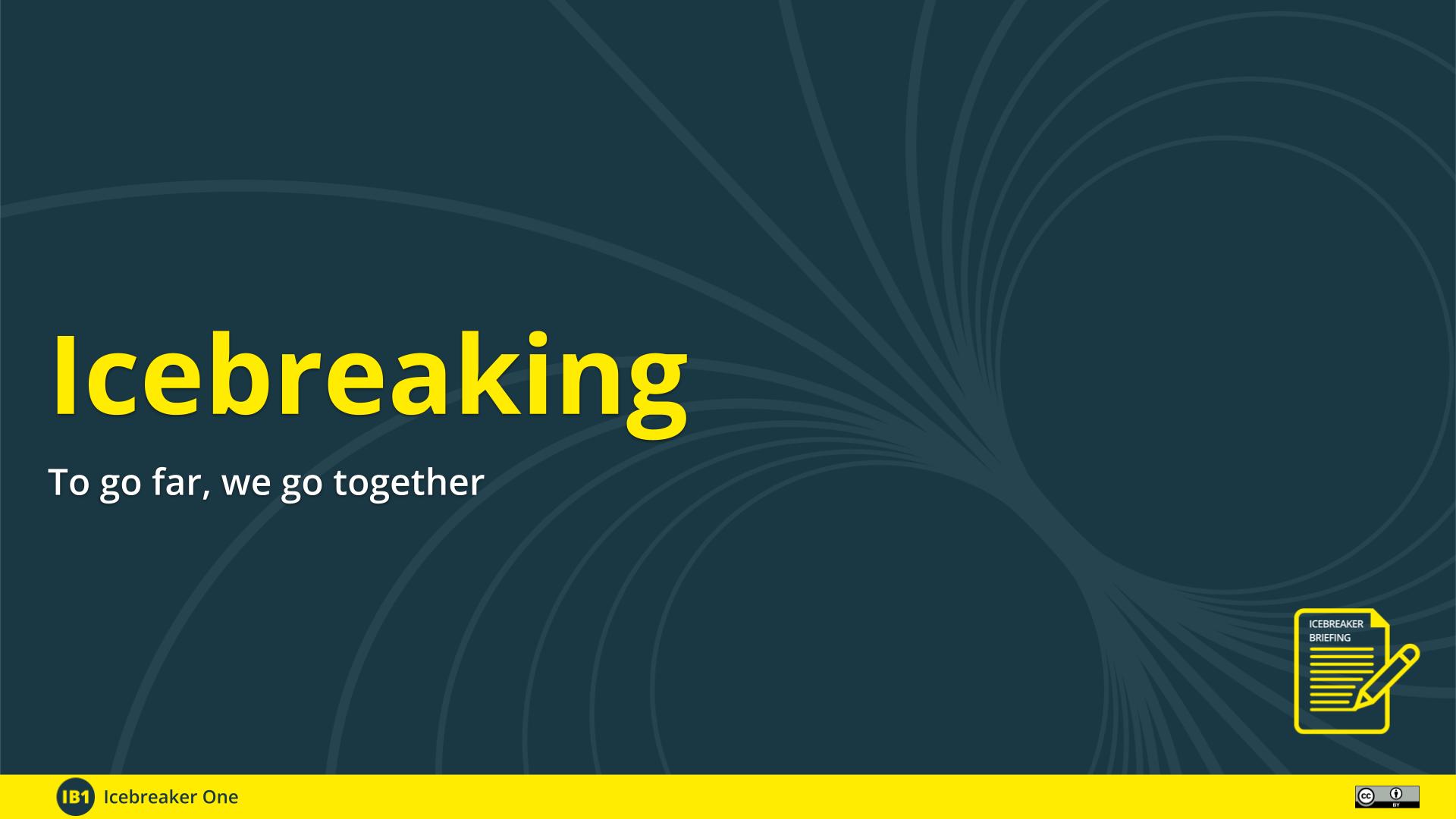Collaboratively design data sharing rulebooks
Outcome: Value creation based on low-friction, assurable data sharing, discovery and use.
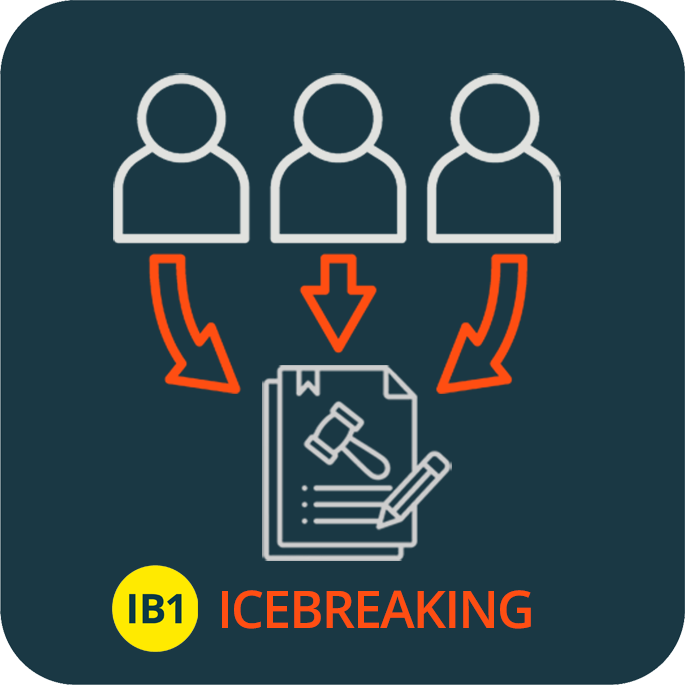
The Icebreaking process convenes stakeholders around purpose and priority use cases – build on our experience to save time and money. With strong governance and oversight, stakeholders and experts collaborate to co-design Schemes that address legal, technical, policy and communications needs. Trust Services can (optionally) be used to implement Schemes at market scale.
We act as an independent catalyst to collaborative action. As a neutral, non-partisan, non-profit we help you deliver impact by unlocking trusted data sharing at market scale. This open market architecture for data sharing includes both commercial and non-commerical data.
Outputs
IB1 helps organisations implement data governance by coordinating and defining pre-competitive rules for data sharing. These rules are codified into a Scheme agreement: a multilateral contract covering everything from legal terms to technical standards.
The Icebreaking process is tailored to programme-specific needs:
- Impact: Priority use case(s) identified from both internal & external perspectives that are linked to impact (e.g. finance/ESG, energy, transport, built world, water, agriculture, as agreed during the programme)
- Business Value: Exploration of product and service innovation, driven by priority business cases
- Ecosystem engagement: Partnership development with stakeholders and related parts of the Net Zero Data value chain
- Sustainable collaboration: process that breaks down internal & external data silos and unlock innovation
- Co-investment: Joint development to fund, develop and implement data sharing (e.g. joint bidding, joint development with startups, secondment as deemed appropriate).
“Good governance doesn’t add delay, it accelerates adoption”
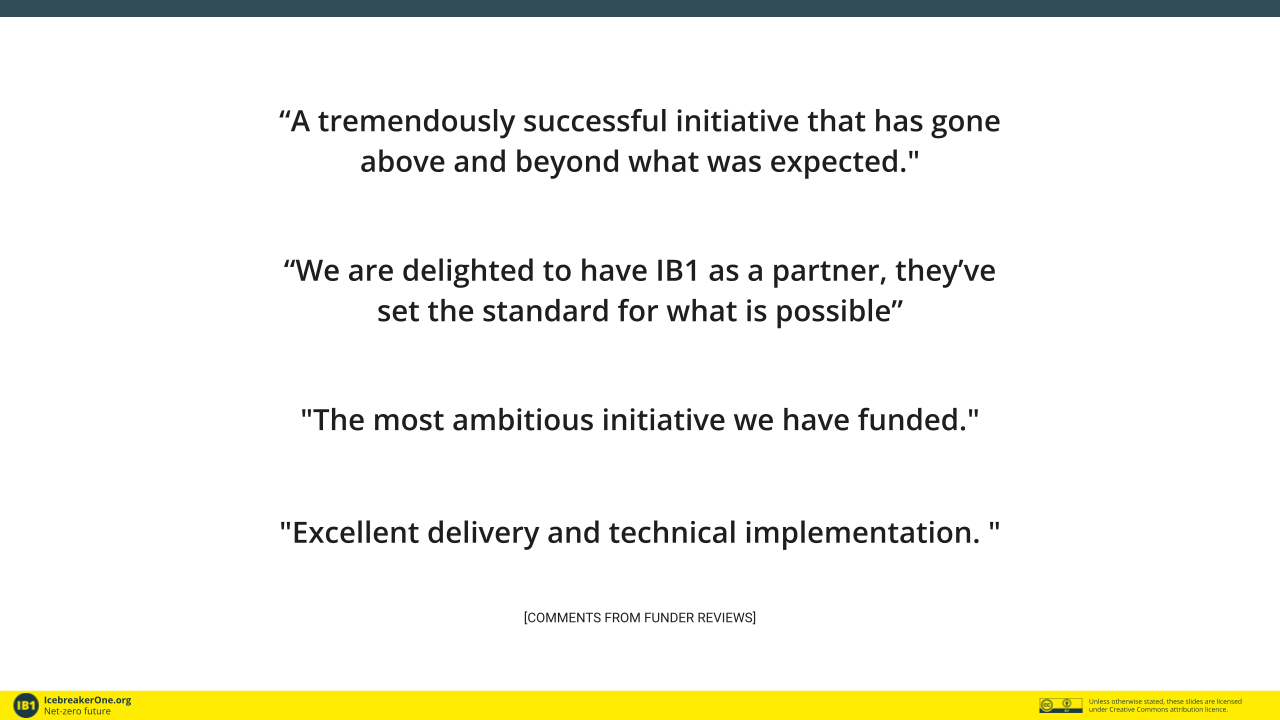
Process: to go far, we go together
The process includes Steering Groups with up to five Advisory Groups to ensure that we can co-design and implement market-wide solutions, address specific user needs and address technical (data standards, APIs, etc.) and non-technical (legal, policy, communication) together.
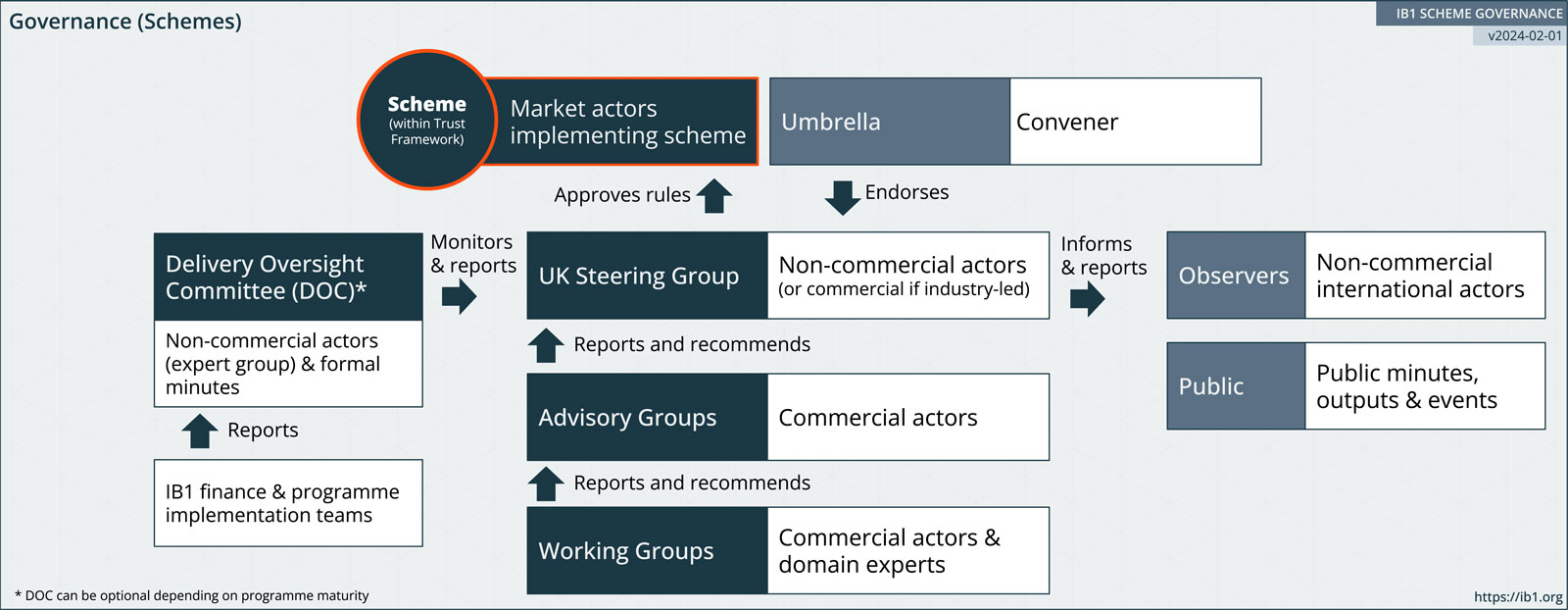
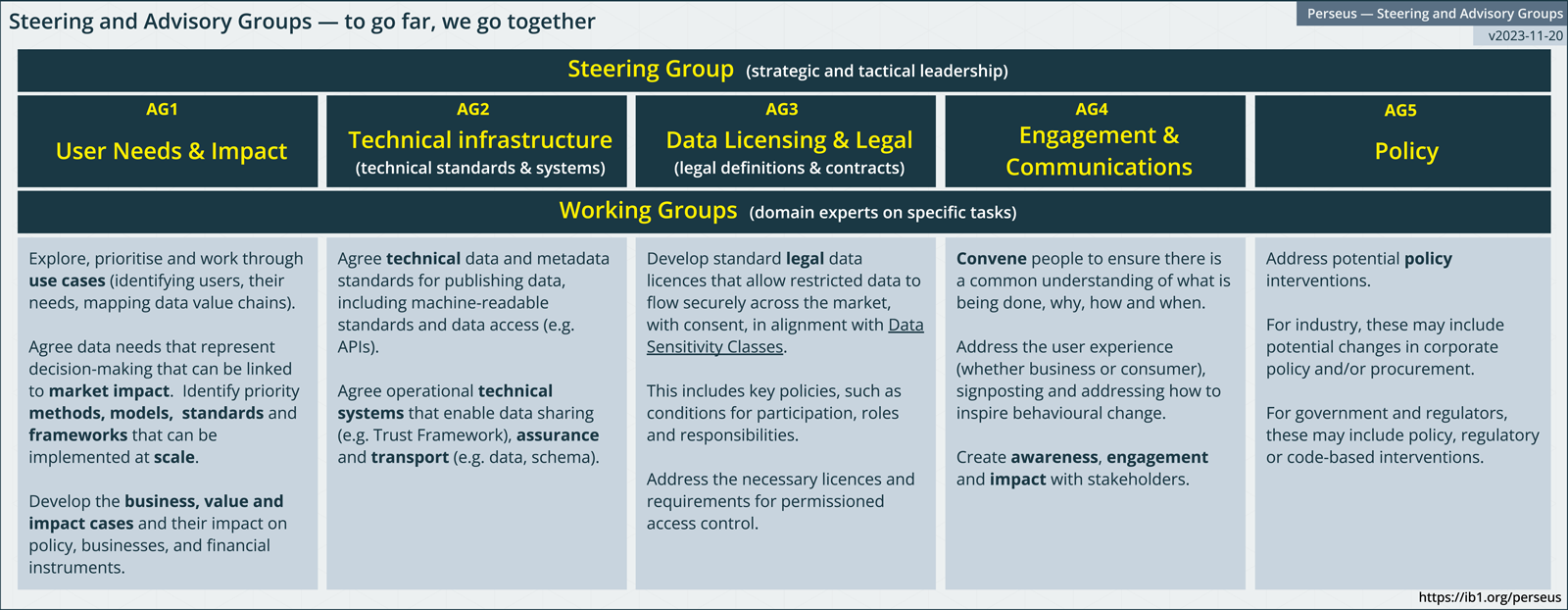
Why do we need good data governance? Why is it valuable for me?
In a rapidly evolving landscape where data and digitalisation underpin an ever-expanding range of processes, products and services, good data governance enables management teams and boards to run organisations legally, ethically, sustainably, and successfully. It also enables organisations to work for the benefit of different stakeholders, such as shareholders, staff, clients and customers, and for the good of both wider society and the environment.
Establishing good data governance is valuable because it empowers organisations to make clear and legitimate decisions, identify and appropriately manage risks, respond effectively to change, and foster trust. Each of these areas of governance activity contributes both to the success of individual organisations and to the establishment of wider ecosystems supporting trusted practices that bring co-benefits to all ecosystem members, wider society, and the environment.
Three key drivers inform the imperatives for organisations in the UK, and internationally, to establish robust data governance: 1) legal and policy change 2) risk management needs 3) business and organisational development.
- In the UK, legislation is changing and establishing new rules that will impact data sharing across the economy. This is evolving rapidly through legislative and regulatory interventions. IB1 is involved in this landscape (e.g. its CEO is co-chair of the UK Smart Data Council) and actively engages with relevant stakeholders (e.g. government, regulators, code bodies) on an ongoing basis.
- Commercial and non-commercial organisations are also seeking to improve the management of existing risks (e.g. security, licensing, liabilities), and to better understand and handle emerging risks (e.g. AI, ML). Such risks impact not only individual organisations, but sectors, and at national level (e.g. national security, competitive threats, monopoly behaviours). Jurisdictions around the world are taking similar approaches. Robust governance reduces risks and liabilities.
- All organisations are seeking to connect data more effectively, to increase their ability to derive meaningful insights, to manage costs, improve efficiencies and to innovate. As the sources and users of data grow, the complexity of managing multiple stakeholders within, and across, sectors, aligning approaches is crucial to manage complexity and increase value.
Please email partners@ib1.org to discuss your needs.

